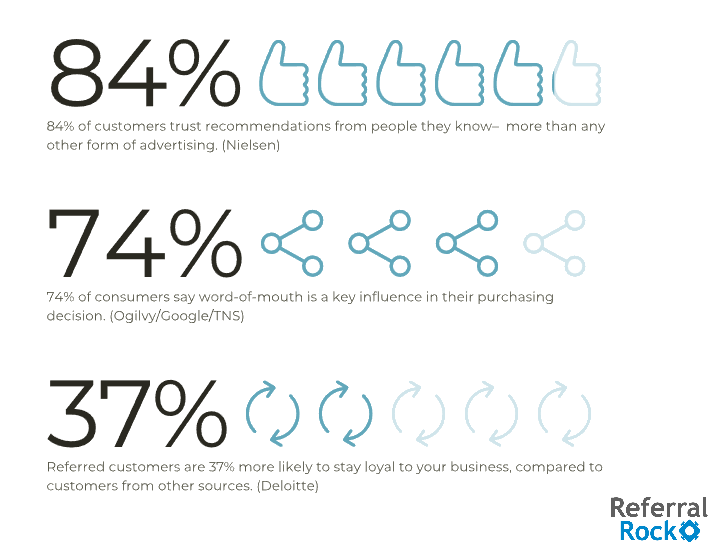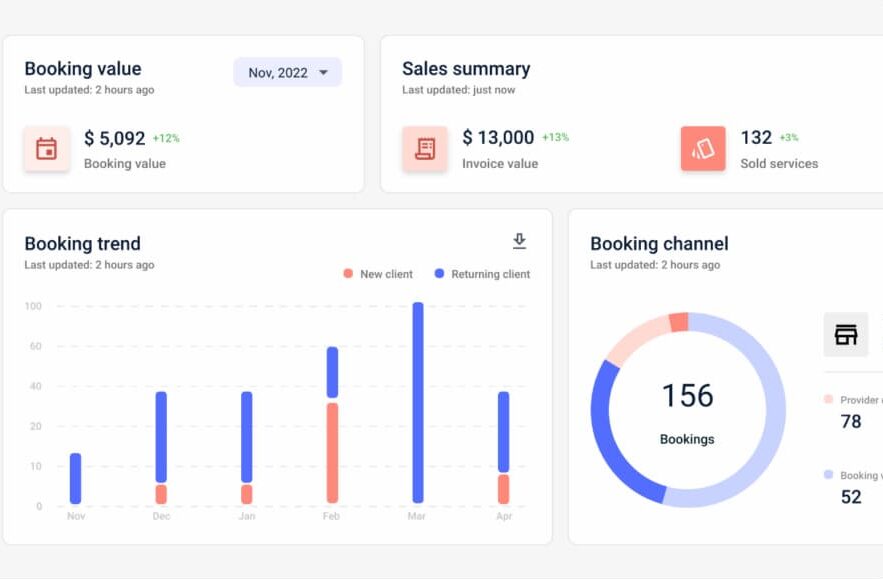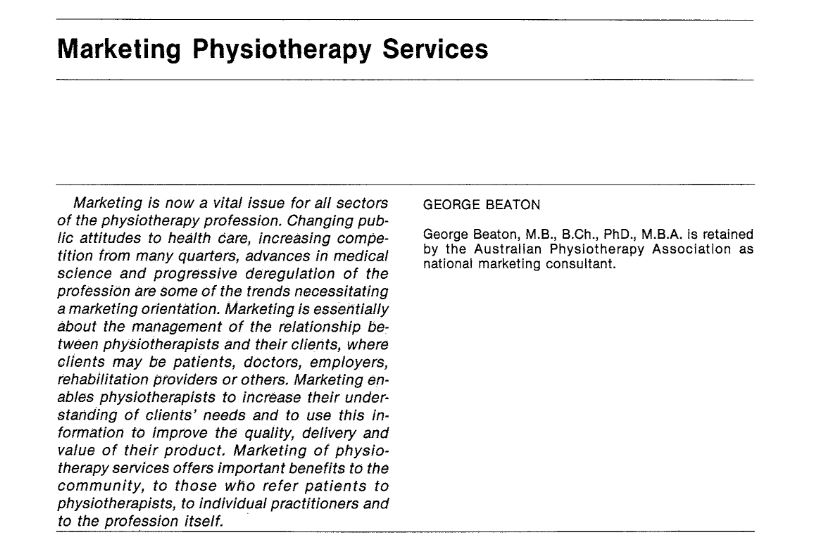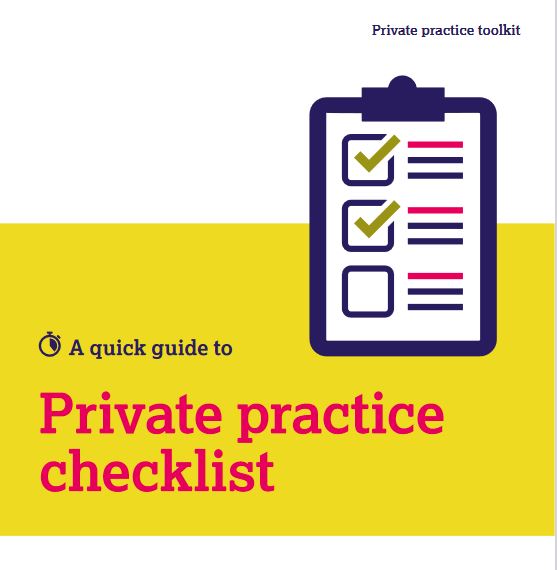In today’s competitive healthcare landscape, the strategic implementation of private practice marketing is not merely an option but a pivotal driver of success.
This comprehensive guide delves into the dynamic realm of private practice marketing, unveiling a range of strategic initiatives aimed at expanding reach, fostering patient loyalty, and elevating brand prominence. By delving into these proven strategies, practice owners can unlock new avenues for growth and forge enduring connections with their target audience.
Yocale Mental Health Software: Manage Scheduling, Marketing, Reporting, and More
- Identify Your Target Market
- Develop a Comprehensive Marketing Plan
- Branding and Positioning
- Online Presence and Digital Marketing
- Patient Referrals and Networking
- Content Marketing and Thought Leadership
- Online Reviews and Testimonials
- Community Engagement and Events
- Monitoring and Analyzing Marketing Efforts
- Conclusion
- Yocale EMR for Mental Health
- FAQs
- Documents
- References
Identify Your Target Market
At the heart of any successful marketing campaign lies a deep understanding of the target market. Defining your ideal patient profile and understanding their unique needs is the cornerstone of effective marketing.
This step is your compass to navigate the vast landscape of potential clients and connect with the individuals who truly resonate with your services.
Here’s why identifying your target market is the cornerstone of your private practice marketing journey:
1. Mastering Your Offerings:
Your first task is gaining a crystal-clear understanding of the services your private practice offers. This clarity becomes the foundation upon which you build your connection with your ideal clients.
2. Harnessing the Potential of Demographics:
Analyzing the demographics of your target audience can offer valuable insights into crafting a more effective private practice marketing strategy.
Delve into the specifics—age, gender, location, education, income, and more. A demographic insight helps you craft a mental image of the people most likely to benefit from your expertise.
Use the following chart as an example to visually represent the age and gender distribution of your potential clients:
| Age Group | Percentage | Gender Breakdown |
| 18-24 | 15% | Female: 65% |
| 25-34 | 30% | Female: 75% |
| 35-44 | 25% | Female: 60% |
| 45-54 | 20% | Female: 70% |
| 55+ | 10% | Female: 80% |
This demographic breakdown reveals that your primary audience falls within the 25-34 age range, with a higher female representation. Utilize this data to tailor your marketing messages and platforms accordingly.
3. Delving Deeper with Psychographics:
Peek into the minds of your potential clients. Their interests, lifestyle, values, and behaviors paint a vivid portrait, allowing you to tailor your private practice marketing approach with a personal touch.
4. Navigating Through Pain Points:
Addressing challenges lies at the heart of your services. Identifying the obstacles your potential clients face gives you the leverage to position your practice as the solution they’ve been seeking.
5. Learning from Competitors:
Your rivals hold clues. Analyze their strategies to discover unexplored niches and untapped segments that could become your playground.
6. Embracing Segmentation:
Variety is key. Within your potential client pool, various segments with distinct preferences emerge. Your ability to cater to each segment sets you and your private practice marketing apart.
7. Igniting Your Unique Spark:
Define your value proposition—the spark that differentiates your practice. This is your guiding light, steering your target audience toward the transformative experience you offer.
8. Speaking Their Language:
Tailor your messages to resonate with your audience’s emotions, aspirations, and dreams. Speaking their language cultivates an instant connection.
9. Channeling Your Efforts:
From social media to networking events, select the platforms that align with your audience’s preferences. This laser-focused approach magnifies your influence.
So, as you embark on this journey, remember that understanding your potential clients is your passport to success. Identifying your ideal audience ensures that your private practice marketing strategy is a finely tuned symphony, harmonizing your services with the people who truly need them.
Develop a Comprehensive Marketing Plan
Imagine embarking on a journey without a map or destination in mind. Much like this scenario, running a private practice without a strategic marketing plan can leave you feeling lost and directionless. Your practice may offer top-tier services, but without effective marketing, your target audience might remain oblivious to your existence.
A well-thought-out private practice marketing plan empowers you to:
- Define Clear Objectives: By establishing concrete marketing goals, you gain a clear understanding of what you aim to achieve. Whether it’s increasing patient appointments, expanding services, or boosting revenue, your goals become the driving force behind your marketing efforts.
- Tailor Your Approach: Every private practice is unique. Your plan allows you to tailor your marketing tactics to resonate with your specific audience, showcasing the value you provide and building trust.
- Allocate Resources Wisely: In a world brimming with marketing channels and tools, it’s easy to get lost in the noise. A well-structured marketing plan helps you identify the most effective channels for your practice, ensuring you allocate your resources – whether they be time, finances, or personnel – in the most efficient manner.
Here are some of the most effective marketing channels in 2023:

Creating Your Private Practice Marketing Plan
To create a well-organized private practice marketing plan, you need to:
- Set Clear Goals: Begin by outlining specific, measurable, achievable, relevant, and time-bound (SMART) goals. Whether it’s acquiring a certain number of new patients per month, increasing appointment bookings by a certain percentage, or enhancing brand awareness, these goals lay the foundation for your marketing efforts.
- Identify Key Marketing Channels: Research and analyze the various marketing channels available to you. From social media platforms and content marketing to referral networks, understanding where your target audience hangs out will enable you to focus your efforts where they matter most.
- Craft Your Unique Selling Proposition (USP): What sets your private practice apart from the competition? Your USP is the heart of your private practice marketing strategy. Highlight what makes your practice exceptional – whether it’s your specialized expertise, patient-centered approach, or cutting-edge treatments.
- Allocate Resources wisely: Your marketing budget and personnel should align with your goals and chosen marketing channels. Allocate resources wisely, ensuring you’re investing enough to achieve your objectives while maintaining a healthy return on investment (ROI).
- Create a Timeline: Establish a timeline for your marketing initiatives. Break down your goals into actionable steps and assign specific timeframes to each. This not only keeps you accountable but also enables you to track progress and make adjustments as needed.
In the competitive realm of private practice, a strategic plan for your private practice marketing is your key to success. It navigates your practice toward growth, helps you connect with your target audience, and maximizes the impact of your efforts.
Branding and Positioning
In the world of private practice, differentiation is key, and that’s where branding takes center stage. Branding not only defines the identity of your practice but goes beyond visual appeal, forming an emotional link with your audience.
While doing your private practice marketing, keep in mind that a potent brand triggers trust and recognition, making your practice the preferred choice.
Here are the key elements in creating a brand identity:
- Compelling Logo: Your logo should elegantly capture the very essence of your practice while being simple and recognizable.
- Engaging Website: Your website serves as the initial point of contact. Incorporate your brand consistently to reinforce identity.
Check Yocale’s Marketing Packages for Website Management – SEO – Paid ad search
- Consistent Messaging: A unified voice across all platforms strengthens your brand identity by creating a cohesive and memorable impression.
Aside from branding, positioning is also an important factor in private practice marketing. Positioning your practice as a trusted authority involves strategically establishing your expertise and credibility within your niche.
By consistently showcasing your knowledge and sharing valuable insights through various channels such as blogs, webinars, and podcasts, you can demonstrate your unique perspective and industry expertise. This positions your practice as the go-to resource for individuals seeking specialized services, fostering trust and confidence in your offerings.
Online Presence and Digital Marketing
Having a strong online presence is also essential if you’re doing private practice marketing.
Your practice’s website serves as its digital storefront. It’s where potential clients form their first impressions, and you have mere seconds to make it count. To guide practice owners in developing a professional and user-friendly website, follow these key steps:
- Opt for a clean, clutter-free design that reflects your practice’s branding. Use a simple navigation structure that allows visitors to find information effortlessly.
- Your website content should clearly articulate your services, expertise, and approach. Use language that resonates with your target audience and avoids jargon.
- With a significant portion of internet users accessing websites via mobile devices, ensure your website is responsive and functions flawlessly across various screen sizes.
- Incorporate high-quality images and, if relevant, videos that convey the atmosphere of your practice. Although there may be some image or video marketing challenges, the potential of visual content to greatly amplify user engagement remains undeniable.
- Every page should have a clear CTA, guiding visitors on the next steps, whether it’s scheduling an appointment, contacting your practice, or subscribing to your newsletter.
But having a good website is not enough. You also need to do digital marketing, which is a multifaceted approach that encompasses various strategies aimed at reaching, engaging, and converting your target audience.
Join for Free: Manage Your Business with Yocale Mental Health Practice Management Software
Here are some essential digital marketing ideas to help your private practice marketing:
1. Search Engine Optimization (SEO):
Implement on-page and off-page SEO techniques to improve your website’s visibility on search engines like Google. Target relevant keywords and optimize your content to rank higher in search results.
“The market for global SEO services expanded from $62.75 billion in 2022 to $74.76 billion in 2023, showcasing a remarkable compound annual growth rate (CAGR) of 19.1%.”
2. Content Marketing:
Create valuable and informative user-generated content that addresses your audience’s pain points and questions. Regularly publishing blog posts, articles, and guides establishes your practice as an authority in your field.
3. Social Media Marketing:
Leverage platforms like Facebook, Instagram, LinkedIn, and Twitter to connect with your audience. Share informative posts, success stories, and engage in conversations to build a loyal online community.
Here is a social media platforms’ reported data from 2023 by Demand Sage and Sprout Social:
| Social Media Platform | Popularity among Marketers | Monthly Active Users (MAUs) |
| 90% worldwide marketers | 2.99 billion | |
| 79% worldwide marketers | 2.5 billion | |
| YouTube | 72% worldwide marketers | 2.68 billion |
| 63% worldwide marketers | 450 million |
It is important to note that these percentages are just a general trend, and the popularity of different social media platforms can vary depending on the industry and target audience. For example, TikTok marketing is particularly popular with those with younger audiences, while LinkedIn marketing is more popular with professionals.
Ultimately, the best social media platform for your brand or business will depend on a number of factors, including your target audience, your budget, and your goals.
Read more: Effectively Marketing To Generation Z
4. Online Advertising:
Utilize platforms like Google Ads and social media advertising to reach a wider audience. These platforms offer targeting options that allow you to focus your ads on users who are most likely to be interested in your services.
By crafting an appealing website, mastering SEO, producing valuable content, and engaging with your audience on social media, you can establish your practice as a trusted resource and attract the clients you’re eager to serve.
“According to reports, companies generate an average of $2 in revenue for each $1 invested in Google Ads.”
Patient Referrals and Networking
Patient referrals are golden tickets to practice growth. Designing a patient referral program incentivizes satisfied patients to spread the word. These referrals are more than just word-of-mouth recommendations; they’re a testament to the trust and exceptional care your practice provides. This personal touch fosters authenticity that traditional marketing can’t replicate.
Here is data showing how important referral marketing is:


Develop a straightforward referral program by openly communicating its benefits. Incentives like discounts or small gestures can motivate patients to actively refer others. This process creates a network of devoted advocates who champion your practice.
Fostering relationships with other healthcare professionals is as vital as patient referrals. Cultivate relationships with doctors and specialists by showcasing your commitment to patient care. Collaboration leads to shared referrals and improved patient outcomes.
Attend networking events and join professional organizations to expand your network. By attending events and conferences, you can both stay updated and connect with peers. Membership in professional organizations can also showcase your dedication and open doors to collaborations and growth.
Read more: Fascinating Marketing Tactics That Can Help Your Business Grow
Content Marketing and Thought Leadership
In the world of private practice marketing thought leadership stands as another key to success. Central to this approach is content marketing, a dynamic strategy that not only showcases your expertise but also nurtures strong connections with your audience.
Content marketing isn’t just about information – it’s about creating value and trust. Understanding your audience’s needs, and through well-researched content provide solutions to their challenges. Share your expertise in accessible ways, proving your capabilities.
By crafting insightful blog posts, in-depth articles, engaging videos, and informative podcasts, you position your practice as an industry authority.
“In a 2022 global survey of marketers, 80% believed their content marketing strategy was highly successful.”
Promotion and Distribution Strategies
Creating perfect content is not enough for driving your private practice marketing success. To establish yourself as a thought leader, you need to ensure your content reaches your intended audience.
Here are some strategies for promoting and distributing your content effectively:
- Leverage Social Media: Share your content across various social media platforms, using compelling captions and appropriate hashtags to increase visibility. It’s a great method especially if you’re doing small business marketing.
- Email Marketing: Build an email list of interested individuals and send them regular newsletters containing links to your latest content. Try to send personalized emails to boost customer loyalty. This also helps maintain engagement and fosters a sense of community.
- Collaborations: Partner with other thought leaders, influencers, or professionals in related fields. Guest posting, joint webinars, or podcast interviews can introduce your practice to a broader audience.
- SEO Optimization: Optimize your content for search engines to improve its visibility in search results. Incorporate relevant keywords and use metadata effectively.
- Repurpose Content: Turn your blog posts into engaging videos and your podcasts into informative articles. Using both content marketing and video marketing allows you to reach different segments of your audience with the same core message.
- Engage with Comments: Respond to comments and engage in discussions around your content. This not only showcases your expertise but also builds a stronger connection with your audience.
Read more: What Are The Most Cost-Effective Online Marketing Options For A Small Company
Online Reviews and Testimonials
In private practice marketing, online reviews and testimonials hold immense sway over potential patients. Encourage satisfied patients to share their positive experiences online, bolstering your practice’s reputation.
Respond promptly to positive reviews with gratitude and a personal touch to encourage more patients to share their feedback.
Do not forget to address negative reviews as well. Respond quickly and professionally. Apologize for any shortcomings, offer to discuss the issue privately, and demonstrate a commitment to improving the patient experience.
You can also display a selection of glowing testimonials on your website and social media. This provides social proof and builds credibility with potential patients.
Community Engagement and Events
Forging connections through community engagement and events is a game-changing strategy in private practice marketing, as it builds a bridge between your practice and the local community.
– Elevate your impact by hosting or participating in community events, health fairs, and educational seminars. By doing so, you not only raise awareness about your services but also deliver substantial value to those you engage with.
– To increase your influence, team up with local businesses and groups. Partnerships with gyms, wellness centers, and other similar entities bring mutual benefits, broadening your audience and enhancing credibility.
Monitoring and Analyzing Marketing Efforts
Similar to any effective marketing strategy, data serves as your compass in private practice marketing, directing you toward sustainable growth. Monitoring and analyzing marketing metrics should never be considered mere afterthoughts; instead, they stand as your pivotal tools for refining strategies and maximizing returns.
Consistently track essential metrics such as website traffic, patient inquiries, conversion rates, and return on investment (ROI). Additionally, harness the power of various tools and platforms to extract valuable insights into the efficiency of your efforts, making informed adjustments as needed.
Consider employing the following tools to enhance your strategy:
- Google Analytics: Track website traffic, user engagement, and conversion rates for actionable insights.
- CRM Systems: Manage inquiries, track interactions, and nurture patient relationships for a personalized experience.
- Social Media Analytics: Learn about audience demographics, engagement rates, and post reach.
- Email Marketing Data: Uncover open rates, click-through rates, and subscriber behavior to guide email strategies.
Using an EMR can also be of great help. Using a practice management software like Yocale, allows you to get key insights into your practice at a glance! Track your retentions, booking revenue, sales summary, historical metrics, and more!
Schedule a free demo call or sign up for our free forever plan
Conclusion
In the dynamic realm of private practice, implementing effective marketing strategies is a vital component of growth and success. By deeply understanding your target market, building a strong brand, harnessing digital marketing channels, and using other strategies mentioned in this article, you can craft a comprehensive marketing plan that draws in new patients while nurturing existing relationships. Do not forget to continuously adapt and monitor to stay relevant and ensure ongoing success.
This holistic approach ensures not only practice growth but also a meaningful impact on patient well-being. Your journey into private practice marketing holds the potential for transformative outcomes.
Yocale EMR for Mental Health
Transform your Business with Yocale EMR software.


Say goodbye to paperwork and spreadsheets by digitizing your filing cabinet with EHR. With our user-friendly EMR system, you can chart faster and access client information from your tablet, saving you valuable time each week. Focus on what matters most – providing exceptional care to your clients.
Empower your practice effortlessly with Yocale’s feature-rich software.
| Charting | Enhance Your Client Management with a 360-Degree View. Access client profiles with ease and store vital information such as details, appointment history, forms, charts, invoices, reminders, and more. Enjoy seamless accessibility from any device, allowing you to stay organized and informed no matter where you are. |
| Records | Effortless chart customization and efficient documentation. Create custom charts with checkboxes, fields, and digital drawings for quick and accurate clinical records. Insert commonly used text with a click and chart from your tablet. Streamline your workflow and save time. |
| Tracking | Effortlessly track charting progress and stay organized. Identify draft charts and pending forms with ease. Monitor unpaid or partially paid payments directly from client records. Stay on top of your tasks and follow up with just a click. |
| Filing | Experience seamless and secure file management with automatic filing. Say goodbye to cumbersome paper-based records as charts are written and stored automatically within each client’s profile. Retrieve ad-hoc notes effortlessly with convenient pop-up access. Enhance data security by enabling protection and encryption for all charts. |
Ready to Get Started? Sign Up for Free with Yocale Mental Health Software
FAQs
Utilize a mix of strategies, including creating a professional website, engaging on social media, networking with local professionals, offering workshops or webinars, and gathering client testimonials to effectively market your private therapy practice.
To succeed in private practice, focus on providing excellent client care, maintain a strong online presence, network with other professionals, manage your business effectively, and continually seek professional development opportunities.
A private practice refers to a professional service or business, often in fields like healthcare or therapy, where an individual practitioner operates independently, providing services directly to clients on a fee-for-service basis.
Private practice is when a single practitioner operates independently, providing services directly to clients on a fee-for-service basis. The practitioner manages all aspects of the practice.
On the other hand, a group practice is when multiple practitioners work together under the same practice name, often sharing resources and administrative tasks. They may have different specialties and collaborate to serve a broader client base.
Utilize online platforms and strategies such as creating a professional website, engaging in social media marketing, utilizing online directories, offering informative content (blogs, videos, webinars), and seeking client reviews and testimonials. Offline, consider networking, collaborating with local professionals, and offering workshops or seminars in your community.
To start a counseling practice, follow these steps:
1. Obtain the necessary qualifications and licenses.
2. Develop a business plan and choose a niche.
3. Create a comfortable and professional space.
4. Set pricing and policies.
5. Develop a marketing strategy.
6. Build an online presence.
7. Network with local professionals.
8. Start seeing clients and provide excellent service.
Documents


Private Practice Counselling Business Plan
Irish Association for Counselling and Psychotherapy, 9 pages




Private practice checklist
British Association for Counsellors and Psychotherapists, 13 pages


References
- What is a Marketing Plan & How to Write One [+Examples] | Hupspot, https://blog.hubspot.com/marketing/marketing-plan-examples
- Content marketing strategy effectiveness among marketers worldwide | Statista, https://www.statista.com/statistics/1297607/content-marketing-effectiveness-worldwide/
- The Ultimate Guide To S.M.A.R.T. Goals | Forbes,
https://www.forbes.com/advisor/business/smart-goals/ - Search engine optimization services global market report 2023 | The Business Research Company,
https://www.thebusinessresearchcompany.com/report/search-engine-optimization-services-global-market-report - Craft Your Unique Selling Proposition (USP) | Harvestr,
https://blog.harvestr.io/usp - Return on Investment (ROI): How to Calculate It and What It Means | Investopedia, https://www.investopedia.com/terms/r/returnoninvestment.asp
- Google Ads statistics and trends in 2023 | Gitnux,
https://blog.gitnux.com/google-ads-statistics/ - 50+ of the most important social media marketing statistics for 2023 | Sprout Social, https://sproutsocial.com/insights/social-media-statistics/
- Leading social media platforms used by marketers worldwide as of January 2023 | Statista, https://www.statista.com/statistics/259379/social-media-platforms-used-by-marketers-worldwide/
- 23 Top Social Media Sites to Consider for Your Brand in 2024 | Buffer, https://buffer.com/library/social-media-sites/
- Social Media Users — Global Demographics (2023) | Demand Sage, https://www.demandsage.com/social-media-users/
- The Ultimate teletherapy E-book | THERA Platform,
https://www.theraplatform.com/therapy-resources/364/ultimate-teletherapy-e-book - Private practice therapist: identifying your ideal client | THERA Platform, https://www.theraplatform.com/blog/648/private-practice-therapist-identifying-your-ideal-client
- The Power of Online Presence: Social Media Tips from Top Podcaster Joseph R. Sanock, LPC | Private Practice Toolbox
http://privatepracticetoolbox.net/blog/2014/09/the-power-of-online-presence-social-media-tips-from-top-podcaster-joseph-r-sanock-lpc - Digital Marketing Strategies: Ultimate 2024 Guide | Web FX,
https://www.webfx.com/digital-marketing/learn/digital-marketing-strategies/ - A quick guide to digital marketing for newbies | Forbes, https://www.forbes.com/sites/allbusiness/2020/06/14/quick-guide-to-digital-marketing-for-newbies/
- SEO for Therapists: Keyword Planning | Private Practice skills,
https://privatepracticeskills.com/seo-therapists-keyword-planning/




